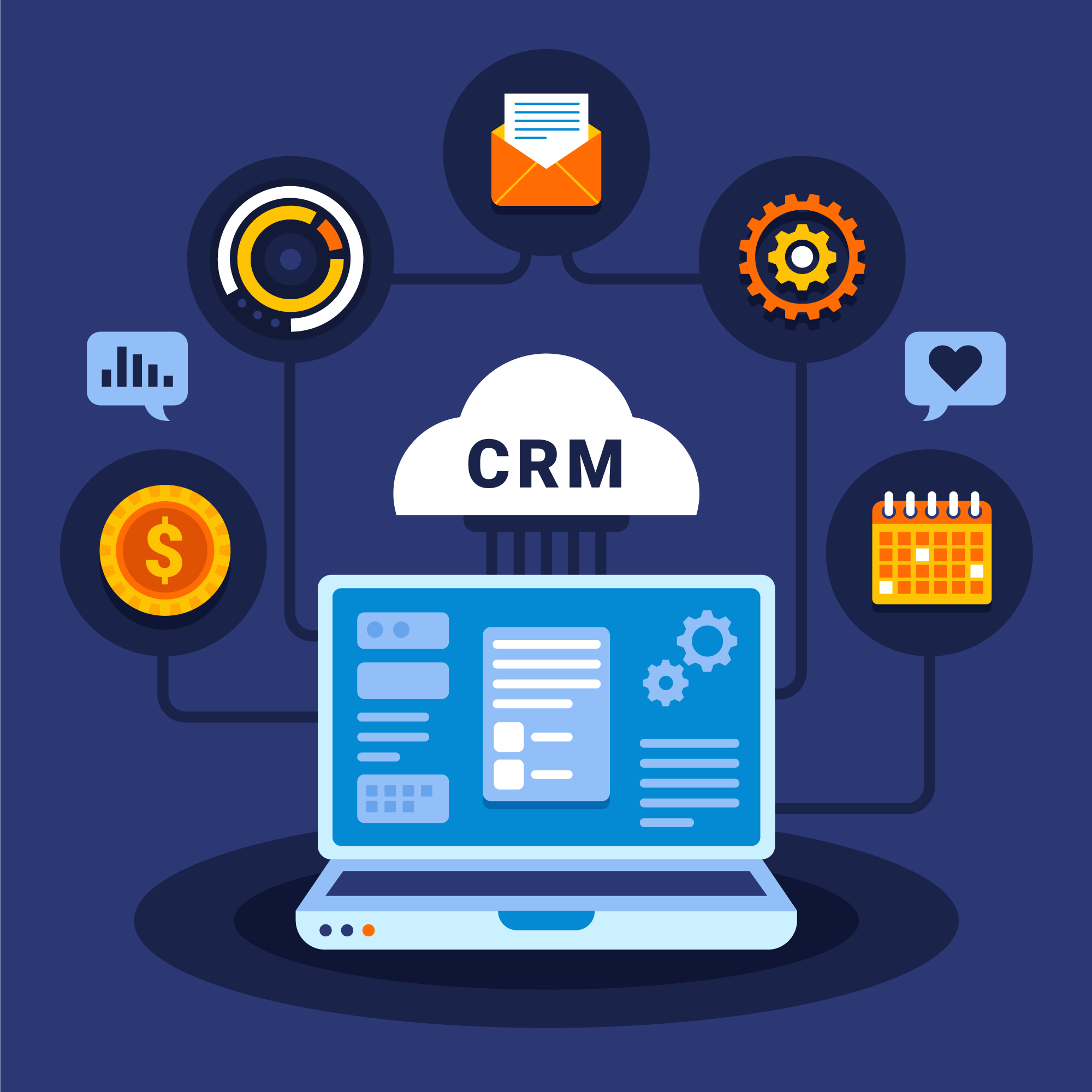In today’s digital landscape, where data breaches and cyber threats are becoming increasingly common, safeguarding customer data is paramount for any business. Customer Relationship Management (CRM) systems, which store sensitive customer information, are particularly vulnerable to these threats. As companies rely more on these systems to manage interactions and relationships, ensuring robust security measures is critical. Implementing secure CRM Development Services can provide the necessary protections to keep customer data safe and maintain trust in your brand.
The Importance of CRM Security
- Protecting Sensitive Information CRMs house vast amounts of sensitive customer data, including personal information, purchase histories, and communication records. A security breach can lead to this information falling into the wrong hands, resulting in identity theft, fraud, and severe damage to customer trust.
- Regulatory Compliance Businesses must comply with various data protection regulations, such as the General Data Protection Regulation (GDPR) in Europe or the California Consumer Privacy Act (CCPA) in the United States. Failure to secure customer data adequately can lead to hefty fines and legal repercussions.
- Maintaining Customer Trust Trust is the cornerstone of customer relationships. Customers expect their data to be handled with the utmost care and security. A data breach can erode this trust, leading to customer attrition and reputational damage.
Key Security Measures for CRM Systems
- Data Encryption Encryption is a fundamental security measure that converts data into a coded format, making it inaccessible to unauthorized users. Implementing end-to-end encryption ensures that data is protected both at rest and in transit, safeguarding it from interception and theft.
- Access Controls and Authentication Restricting access to the CRM system is crucial to prevent unauthorized users from accessing sensitive data. Implementing role-based access controls (RBAC) ensures that employees can only access information relevant to their job functions. Multi-factor authentication (MFA) adds an additional layer of security by requiring users to verify their identity through multiple means.
- Regular Security Audits Conducting regular security audits helps identify vulnerabilities within the CRM system. These audits should include both internal assessments and external penetration testing to uncover potential weaknesses. Addressing these vulnerabilities proactively can prevent exploitation by cybercriminals.
- Data Anonymization Data anonymization involves removing or obfuscating personal identifiers from customer data, making it difficult to trace back to an individual. This measure is particularly useful when sharing data for analysis or processing purposes, as it minimizes the risk of exposing sensitive information.
- Secure APIs Application Programming Interfaces (APIs) are often used to integrate CRM systems with other business applications. Securing these APIs is critical to prevent unauthorized access and data leaks. Implementing API security measures, such as authentication, encryption, and rate limiting, helps protect data integrity and confidentiality.
Addressing Emerging Threats
- Ransomware Attacks Ransomware is a type of malware that encrypts data and demands payment for its release. To mitigate this threat, businesses should implement regular data backups and ensure that these backups are stored securely and separately from the main network.
- Phishing and Social Engineering Cybercriminals often use phishing and social engineering tactics to trick employees into divulging sensitive information or granting access to the CRM system. Regular employee training and awareness programs can help prevent these attacks by educating staff on how to recognize and respond to suspicious activities.
- Insider Threats Insider threats, whether from malicious intent or inadvertent actions, pose significant risks to CRM security. Implementing stringent access controls, monitoring user activities, and fostering a culture of security awareness can help mitigate these threats.
Best Practices for Maintaining CRM Security
- Keep Software Up-to-Date Regularly updating the CRM software and any integrated systems ensures that security patches and updates are applied promptly. This practice helps protect against known vulnerabilities and exploits.
- Implement Data Loss Prevention (DLP) DLP solutions monitor and control the movement of sensitive data within and outside the organization. They can prevent unauthorized sharing or leakage of customer information, reinforcing data security.
- Establish Incident Response Plans Having a well-defined incident response plan is crucial for responding to security breaches effectively. This plan should outline the steps to take in the event of a breach, including communication protocols, data recovery procedures, and post-incident analysis.
- Engage with Security Experts Partnering with security experts or consultants can provide valuable insights and recommendations for enhancing CRM security. They can assist in conducting risk assessments, developing security strategies, and implementing advanced security technologies.
Conclusion
In an era where data breaches and cyber threats are ever-present, ensuring the security of your CRM system is not just a technical necessity but a critical business imperative. Leveraging Web and Mobile development can help you build and maintain a secure CRM environment tailored to your specific needs. By implementing robust security measures, addressing emerging threats, and adhering to best practices, businesses can protect their customer data, maintain regulatory compliance, and foster lasting trust with their customers.
Investing in CRM security is an investment in the long-term success and resilience of your business. As cyber threats continue to evolve, staying vigilant and proactive in protecting customer data will be key to sustaining customer relationships and achieving business excellence.






